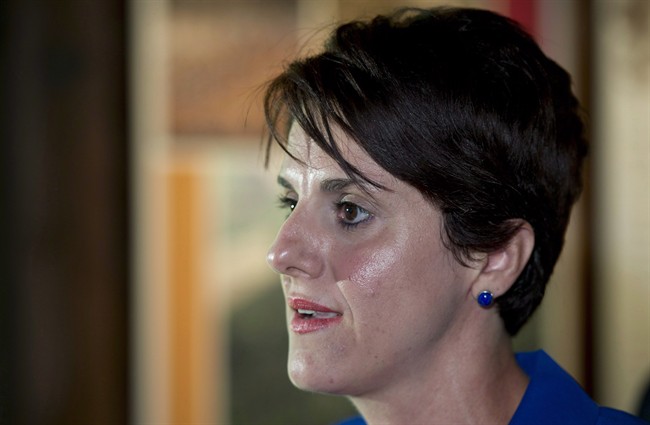A slander trial is set to begin next month pitting a fiercely secular, feminist author against a private, Muslim school in Montreal she likened to militant Islamic training camps in Afghanistan and Pakistan.

Djemila Benhabib, an award-winning author and twice-failed Parti Québécois (PQ) candidate, is claiming freedom of expression, while the school wants $95,000 from her for “greatly tarnishing” its reputation.
Julius Grey, a well-known human-rights and freedom-of-expression lawyer, is defending the school in this case and says he will argue Benhabib crossed the line and caused real harm to the institution.
“I regret nothing,” Benhabib said in an interview Monday as she referred to the 2012 radio comments that have landed her in court.
Benhabib told the Montreal host in 2012 she was concerned by the selection of Qur’anic verses published on the website of the Muslims Schools of Montreal, a private institution that teaches elementary and high school.
The school is accredited by the provincial government and follows the curriculum outlined by the Education Department.
During the 2012 interview, Benhabib said the verses, which have since been removed from the website, inappropriately referred to the need for young girls to stay pure.
She also stated they criticized non-Muslims.
Additionally, she was upset at a school pamphlet distributed in the community showing young girls wearing the hijab.
- Posters promoting ‘Steal From Loblaws Day’ are circulating. How did we get here?
- Solar eclipse eye damage: More than 160 cases reported in Ontario, Quebec
- Video shows Ontario police sharing Trudeau’s location with protester, investigation launched
- Investing tax refunds is low priority for Canadians amid high cost of living: poll
Benhabib took umbrage at the document stating that part of the institution’s mission was to help students “establish a solid relationship with Allah.”
“(The school) resembles the kind of indoctrination similar to what goes on in a military camp in Afghanistan or Pakistan,” she told the radio host.
Moreover, she added the school “models itself on a society different than ours. It’s a model where women have to lower their heads and walk behind men. Where kids are forced to learn Qur’anic verses and where, probably, men will commit honour crimes against their sisters.”
Benhabib was born in Ukraine to a Muslim-Algerian father and a Greek-Cypriot mother.
She said she “suffered through an Islamic educational system” and has vowed to fight against what she calls “political Islam.”
Grey said in an interview the case isn’t about freedom of expression but about slander.
“We are going to argue that the comparison made with terrorism is a particular dangerous one in our time,” Grey said.
“It’s used to create fear and discredit people without any basis and, because of the atmosphere, one has to be careful before one suggests that an organization — which is a perfectly normal and reasonable association — has anything to do with terrorism or training radicalization.”
Benhabib said she never used the word terrorism.
She is hosting a fundraiser in early September to help pay her legal costs.
The court case begins Sept. 26.





Comments